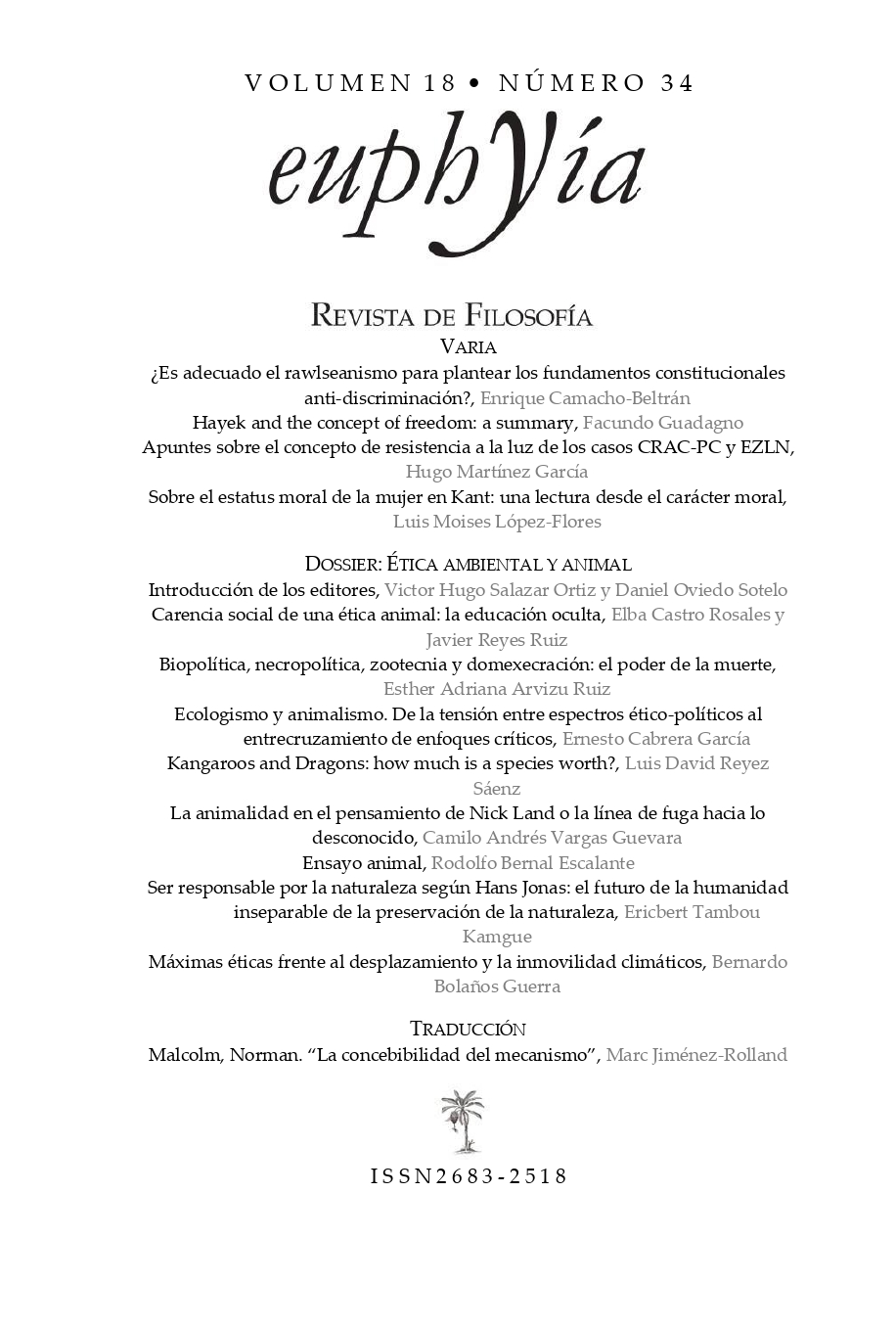Notes on the concept of resistance through the CRAC-PC and EZLN cases
DOI:
https://doi.org/10.33064/34euph7529Abstract
This work carries out a theoretical analysis of resistance in some native communities’ expressions. On the first stage, the present paper explores the elements of a reactive and an alternate resistance. Both are understood in the analysis of two situations: on one hand, the resistance carried out by community defense movements (CRAC-PC and EZLN), referring them to the reactive dimension of resistance; on the other, the impact that culture-tradition — as an alternate aspect of resistance — has on its effectiveness. In this way, the argument on the “success” of community defense exercises lies not just on the fact of forcibly challenging the monopoly of violence of organized crime groups — or the State —, but it also refers to a cultural matrix (or alternate resistance) in which the community is conceived as treasured and as a principle to co-constitute the social order. Based on the aforementioned, it is possible to reveal the value autonomy fulfils in the exercise of all resistance. Thus, some general theses will be implied regarding its realization and understanding.
Downloads

Downloads
Published
How to Cite
Issue
Section
License

This work is licensed under a Creative Commons Attribution-NonCommercial-NoDerivatives 4.0 International License.

Este obra está bajo una licencia de Creative Commons Reconocimiento-NoComercial-SinObraDerivada 4.0 Internacional.











